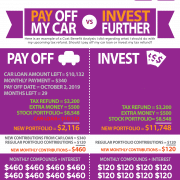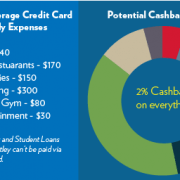3 Simple Ways to Ask for a Raise at a New Job

3 Simple Ways to Ask for a Raise at a New Job
Think about sitting down with your boss to ask for a raise. This can be a very nerve-racking experience. There are so many ways your boss can respond. He can laugh at your request. This question can set him off with anger. Or there you can get a simple, “No.” Now add let’s add some complexity to that thought of asking for a raise. Think about going to your future employer to ask for a raise when you haven’t even started the job yet. Who would do this right?
Personally, I highly recommend it based on an experience I recently had (read on for that story). I look at a built-in raise as a win/win situation for both parties. For you, there is a raise waiting for you just a few short months after starting. For your future employer, they get to look at this raise as almost a retention bonus. They know this extra incentive will increase the chances of you sticking around for that time frame.
Before the Meeting
All of three of these methods have some steps in common. Firstly, you should always write down and practice the pitch to your future employer. Never go into this meeting unprepared which leads to the second step. Do some research! You do not want to go to this meeting being asked a question that you are not prepared for. Research as to why you need this raise and what other companies are doing. Lastly, practice your pitch! Did I say that already? I cannot stress how important this is. Your future employer will wonder who they hired if you cannot put together sentences with strong answers to their questions.
Build in a Future Raise
There are times a company does not have it in their budget to provide a higher starting salary you asked for. When they tell you this news, do not freak out and say goodbye. Slow down a bit before you start looking elsewhere for a new position but rather continue the conversation with your future employer.

Have a raise built into your contract for a later date.
You will want to talk about is the possibility for a future raise. Discuss the timing and what works with their budget. Maybe their fiscal year is over in three or six months from when you start. You could get it written on your starting contract that you would receive this raise when the next fiscal year begins.
Idea: Mentally prepare yourself for how far out this raise could come. They might not have the money to give you a raise for a full twelve months. When you ask for a raise, try to be assertive to get that time frame shorter but do not be aggressive. You do not want to insult your future employer by starting your tenure with a sour taste.
Performance Benchmarks
I will keep this method short and sweet for you. Some positions out in the working world are very performance orientated. Some examples would include sales or even law. A lawyer could state that if they when a particular number of cases that they would be in line with a higher base salary. Or an insurance salesman could ask for a raise to be built in if their margins hit 10% above average.
Idea: Before heading into the interview do some prep work. This prep should consist of researching what the benchmark should be. Do not come to the meeting just with what the benchmark but you should also be prepared as to why the standard should be set where you set it.
Completion of School
With this method to ask for a raise, I had a personal experience with. It worked out well for my family and me.
Back in 2015, I started a new career venture by starting my masters in software development and programming. In 2010 I received my bachelor’s degree in landscape architecture. Honestly, I should have gone into the IT world right out of high school but that is alright. Landscape architecture gave me some amazing experiences such as taking me around the country and world. It also is how I met two of my best friends, Andrew and Tristan.
Moving on from this past and onto my future in the IT world. I planned on work in my retail position while I finished my master’s degree at DU. Once I finished the program I would go out to the real world to grab a new high paying job. As plans usually go it did not go as, well, planned. Actually, everything went better than I planned. A couple terms into my degree I had the opportunity to apply for a job at a local university here in Denver. After the interview process, I landed this position.

Set a raise to be built in after you graduate school.
This was an amazing opportunity that I was given. This meant a lot to our family financially. It allowed us to save for a down payment on a home which is a challenge here in Denver. We have also become more aggressive on our car and student loans though not aggressive enough for my liking.
When negotiating the salary for the new position I got my starting salary right in the middle of the range they were willing to pay. I thought this was a win, especially since I did not have any experience. The key aspect of the contract was we negotiated in an automatic 10% raise. This raise would come when I registered for my last term in my master’s program. This raise took my salary at the top end of the initial range they were willing to pay. I was very happy especially since raises that big is basically unheard of at the university.
Idea: Your future employer might want to see your transcript when you ask for a raise of this type. Mine did. So be prepared by getting that printed off beforehand.
Conclusion
If one of these three “ask for a raise” methods will work for you, then go for it! For me personally, it was reassuring to know that I was going significant raise within six months of starting my new raise. This was especially reassuring after I got to know the company more and realized that raises like mine rarely happen.
The toughest part is getting over those nerves to ask for that raise. I completely understand those nerves. I mean, you haven’t even started the job yet and you are already asking for a raise. Trust me though, it is not that hard. Just remember to do your research to make a solid case. The worse that can happen is your future employer says no. At least you will have an answer with no regrets.










Some companies have regular, usually annual, reviews. Typically the past year’s performance is measured and discussed, and salary increases are handed out. Usually, the entire company performs the Annual Review at the same time. In this scenario, new hires are most often give a pro-rated increase, based on the number of months they have been part of the company.
A few companies have annual reviews that are tied to the hire date of the employee. In this scenario, you would wait 1 full year from your hire to get your first raise.
And some companies have no set period at all. In order to get a raise you must ask for one. If this is the case in your company, you can approach the subject by casually asking your boss during a 1-on-1 meeting “So, what’s the procedure for getting a raise at this company?” and taking it from there.
Other factors such as locale, union affiliation, etc – all go into when you can expect an opportunity for a raise.
Check all of these factors out in your context, learn what applies to you, then proceed. If you are still unsure, just ask your HR department, or your boss.
Hey Victoria! Sorry for the super late response! I appreciate the time you took for your well thought out response! I do agree, a lot of companies already have those regular raises built in after annual reviews or performance benchmarks are met. My case for this article was for those people who are starting a position at a company that does not do that. I was in this situation when I switch from retail to a position that was in my Masters area of focus.
I think this is something you should figure out during the interview process. If they do not have regular raises like my company, then you might consider one of the techniques I mentioned above. If they won’t bite on that, I would go somewhere else for a job.
I LOVE the idea of building in a future raise. It seems highly likely that an employer is going to be much more willing to promise you a raise in a future than to give you one immediately, and so although you won’t be rewarded with an immediate raise, once the date rolls around that they’re promising to give you the raise (6 months, 1 year, etc.) you’ll essentially have a trump card (“You promised!”) and they’ll have almost no choice but to give you a raise, even if they don’t really want to at that time.
It’s also way less stressful and therefore easier to ask for a raise sometime in future than to walk in and feel like you’re being demanding by asking for one immediately.